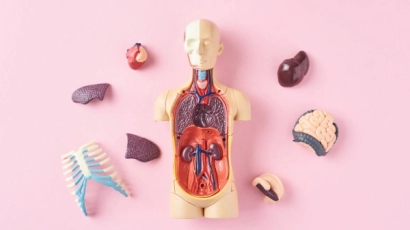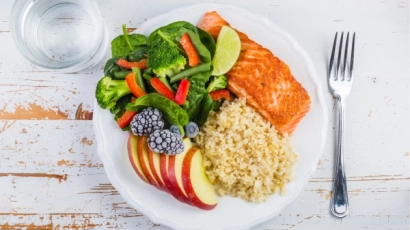If you’re new here, you may not have yet heard of the Q-Pulse framework that ONE Intervention uses. Basically, this framework makes use of six quotients in order to gauge a child’s holistic development. We go into detail for each of the quotients here, but today in particular, we’re going to talk about the Physical Quotient.
Before we get into what the physical quotient is, let’s take a step back and consider the Q-Pulse framework. It’s pioneered by our Founder and Child Psychologist and intended to be used as a tool to observe which areas of development we can best support your child in. These are the six key quotients that make up the framework:
- Emotional Quotient (EQ)
- Cognitive Quotient (IQ)
- Adversity Quotient (AQ)
- Developmental Quotient (DQ)
- Physical Quotient (PQ)
- Social Quotient (SQ)
Each quotient is a crucial pillar of your child’s holistic development. When pieced together, they ensure that your child can thrive in an environment best suited to their needs.
Got it? Great! Today, we’re going to take a closer look at the physical quotient.

What Is The Physical Quotient?
The physical quotient keeps a measure of physical health and overall fitness. It’s not so much an assessment of how skilled you are at sports. Rather, it aims to measure the actual physical well-being of a person. This is done through a number of components, which we’ll list here briefly:
- Motor skills
- Overall fitness
- Endurance
- Strength
- Flexibility
Each of these components play practical and key roles in our everyday lives, even if we don’t always appreciate them. For example, we need both our gross and fine motor skills in order to exert control over our movement. Our gross motor skills come into play when we use large muscle groups for vigorous activity, such as climbing the stairs or play-fighting with the family dog. And our fine motor skills are for smaller muscle groups and movement that requires more delicate control. A good example could be writing our name.
We need our endurance, strength and flexibility outside of sports. Even an act as simple as brisk walking to catch the bus will require some measure of each of the above components. Hence, we can see that physical quotient is actually quite prevalent in our everyday lives.
Consultant Robert Oates in this article by Investors in People defines physical quotient as ‘function of your self-awareness at a most basic level.’ This means that beyond just these physical markers, the physical quotient also encompasses knowledge of how your body moves, works and occupies the space around you.

Basically, physical quotient is the understanding of your own body and physical well-being. For a more detailed breakdown into each of the components that make up the whole physical quotient, click here.
Why is physical quotient important?
Increased self-awareness
Ever heard of the age-old adage, “Know thyself”? Well, physical quotient encapsulates that perfectly. A person with a high physical quotient is able to better understand themselves because they know how to read the signals that their body is sending them.
For example, the person will be able to notice that their muscles are tensed up. They might be breathing heavily and their jaw might feel tight. All of these signs would then help them to name the emotion they are experiencing as anger. And by recognising and naming these physical signs, the person can actively take a step back to prevent themselves from escalating the situation further.
It’s been well-documented that a person’s emotional state can reflect in their physical state. Hence, a better awareness of their physical state will empower a person to be more self-aware of their emotions and thought processes. This heightened self-awareness is definitely useful because it gives the person the most amount of information about themselves, so they can make the best possible decision for, well, themselves.
Improved cognitive development

Just as the emotional state can affect the physical state, the physical state can affect the mental state and vice versa. What this means is that a person can improve their cognitive development by paying attention to their physical quotient as well. This shouldn’t come as too much of a surprise – after all, we know that there’s truth in the saying ‘healthy body, healthy mind!’
This article by Move And Change describes the physical quotient as the ‘container and channel’ through which ideas are expressed. Think of your thoughts as ink and your body as the pen through which ink can flow. Sure, you can have some really good ink, but if the pen is jammed or broken the ink can’t flow and you can’t write anything.
All this is to say that the body and the mind are deeply interconnected. Taking care of one takes care of the other. Therefore, improving the physical quotient will likewise improve one’s cognitive development.
Scientifically speaking, this is because physical intelligence is linked to enhanced executive function. Executive function refers to the part of the brain that takes care of everyday tasks. This includes decision-making, the ability to focus, and the skill of organising and completing assignments.
Improved emotional regulation
Lastly, improving one’s physical quotient also improves one’s emotional regulation. This goes beyond the example of recognising the somatic symptoms of emotions, like anger, as we mentioned earlier.
The fact is that all emotions stem from chemicals and hormones in the brain. We know that the brain is part of our physical bodies, of course. So it stands to reason that by taking care of our bodies, we can exert some measure of control and regulation over our brain’s chemical and hormonal output. Therefore, our physical quotient is able to influence our emotional regulation as well.
See? Our thoughts, bodies and emotions are all intricately connected. It’s arguably easier to take care of our physical bodies than it is to take care of our mental or emotional states, because our physical bodies are tangible. Therefore, it’s quite important that we ensure our physical quotients are of an adequate level as a starting point to ensure that our mental and emotional health is doing fine.
How do we improve our physical quotient?
Prioritise exercise

This may seem fairly obvious, but it’s worth repetition. Regular exercise releases endorphins, which are the body’s natural stress reliever. In fact, endorphins are informally known as ‘feel-good’ chemicals purely because of their ability to uplift one’s emotional and psychological well-being.
Research has also proven that exercise can improve blood flow to your lungs and heart, as well as strengthen your bones and muscles.
All of this is to say that prioritising exercise is one of the most straightforward ways to improve one’s physical quotient. Beyond that, it also has a multitude of benefits for one’s body and mind.
Set aside time for mindfulness
This may not be the first thing that comes to mind when one thinks of physical quotient, but mindfulness is actually very important. Research has shown that mindfulness actively helps to relieve stress, lower blood pressure and improve sleep – just to name a few of its physical benefits.
Mindfulness doesn’t necessarily need to be a grand production with fancy apps or equipment. It can be as simple as just taking three minutes of your time to sit down and focus on your breathing. Doing so forces you to pay attention to your own physical quotient, and is likely to help calm you down.
This is because you’re actively taking a step back from the busy rhythm of the day – it’s like pressing a ‘pause’ button to give your body some time to catch up with your mind. Don’t believe us? Give it a try after you finish reading this article!
Prioritise taking breaks
This is similar to the concept of mindfulness. Basically, taking breaks improves one’s physical quotient because it reminds them to give their bodies space to breathe before moving onto the next task. As we discussed earlier, our mental and physical state are closely interconnected with each other. Mentally, we might be ready to do the next thing. However, physically, our bodies may need to take a moment to process what we’ve done and rest for a little while.

In any case, most of the tasks we do in our everyday lives involve sedentary activity, such as sitting at a desk or dealing with reports on our computers. It’s good for our bodies to stand up and stretch every once in a while, to ensure that we continue to have proper posture and to prevent chronic issues such as back pain.
Have a consistent sleep schedule
This may also seem quite obvious if one wants to improve their physical quotient. However, one shouldn’t underestimate the importance of a consistent sleep schedule. Making sure that you get sufficient sleep ensures that you’re feeling well-rested enough to take on the tasks for the day.
A lack of sleep, on the other hand, could make you more susceptible to illnesses and impair your immune functioning. This means that you’re more likely to fall sick if you don’t sleep well, which would obviously have a negative impact on your overall physical quotient.
As adults, we need at least seven hours of sleep a day in order to perform at our physical best. Teenagers need a little more – eight to ten hours a day – and children need nine to twelve hours a day. All this is to say that sleep is crucial no matter the age group, and that there’s no such thing as being able to function on minimal amounts of sleep just because you’re of a certain age.
Ensure that you consume nutritious meals
What we eat acts as fuel for our bodies. Hence, in order to have a good physical quotient, our meals should be nutritious. An example of this could be meals rich in fruits and vegetables because these contain dietary fibres that help with one’s digestion.
It’s also important to include sufficient amounts of proteins and carbohydrates in our meals too, because these provide our bodies with the energy it needs to maintain an adequately high physical quotient. Examples of protein and carbohydrate intake can include chicken and rice, respectively.
It’s been well-researched that one’s dietary intake affects their physical performance. Hence, eating well can allow one to feel better physically – which in turn improves their mental and emotional state!

There we have it: ONE’s Quick Guide To Everything You Need To Know About Physical Quotient. Do you have any questions? Or any tips to maintain a high physical quotient that we didn’t quite manage to put down here? Well, drop us a comment below – we’d love to hear from you! 💬👇
